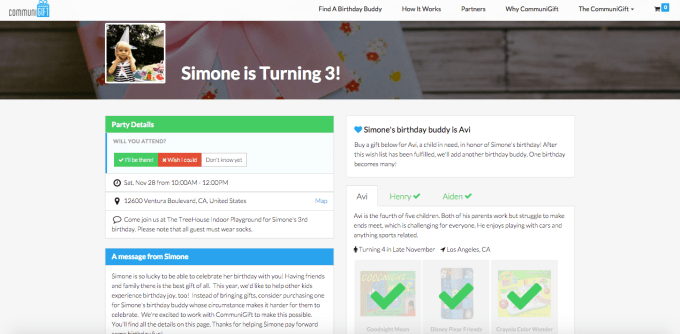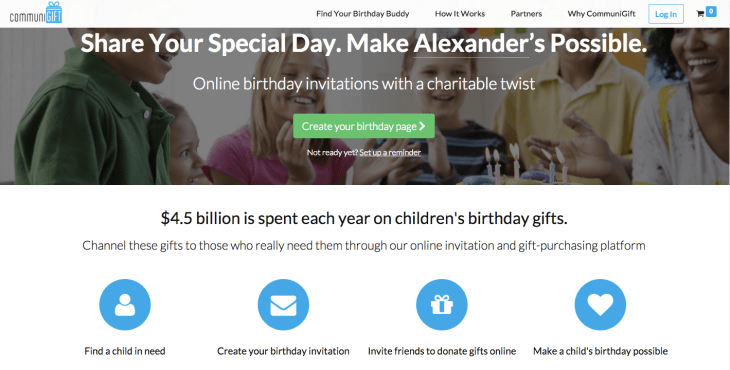With the goal of making every kids’ birthday a dream come true, Los Angeles-based CommuniGift has launched a new business to promote charitable giving just in time for the holidays.
The company, founded by four undergrads from the University of North Carolina, has identified a novel way of connecting would-be donors with those in need.
Their method? The birthday party.
Working with national partners including the Boys and Girls Club of America, the Salvation Army, Volunteers of America, Baby2Baby, and Target, CommuniGift identifies families in need of assistance and lets them connect with donors whose kids share the same birthday and interests.
Kids whose families can’t afford a birthday party or presents get to upload their wish list to the Communigift site and sponsoring families include a link to that list in the invitations they send out to guests of their own kids’ parties.
“Kids create an invitation on our site,” explains Communigift’s 21-year-old executive Thomas Doochin. “They send the email invite to their guests to RSVP and that guest gets to read about their ‘birthday buddy’.”
Guests can then choose to buy something that the ‘birthday buddy’ has put on their wish list and the gift gets delivered to the child who needs it.

A CommuniGift invitation
CommuniGift has partnered with Target as its initial retail partner. “The product ships from Target to the non-profit and the non-profit throws the birthday party for the children in need,” Doochin said.
For Doochin and his partners the public launch of Communigift is the culmination of two years of work spent thinking about how to improve charitable giving online.
The company began as a side project and did a trial run last year with a few hundred families in the LA area. At the time, Doochin and his team thought that it’d be a good way to connect families during the holiday season.
But what began as an aside became a real company when Doochin and his partners shifted the focus from holidays to birthdays.
The company generates revenues through a percentage of the sales it generates for Target — the service is fee for donors and the non-profits, Doochin says.
However, the ability to connect needy families with charitable donors has been a reward in itself, Doochin said.
People respond to the narratives of the families profiled on the site, especially the children, who connect with the stories they read about the people they’re helping, he said.
